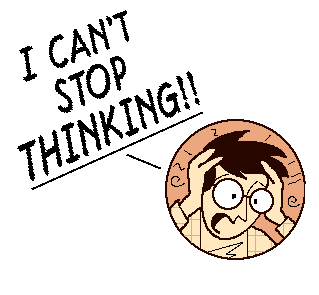I went looking for a word that meant "to affect badly," or something like that, and found in my google search there are SERIOUS debates over the use of "Bad vs. Badly." One's an adjective and one's an adverb, people! Simple, right? Ahhhh, think again:
This is the title from an actual New York Times article that most interested me:
BAD VS. BADLY.; A MORAL, SOCIAL, AND LINGUISTIC DISCUSSION REPLIES TO SOME LADY CORRESPONDENTS, AND RESPECTFUL COMPLIMENTS TO A WESTERN PROFESSOR.
The journalist proceeds to write that his MOST POPULAR letters of inquiry are concerning the proper use of bad vs. badly. (Are you kidding me? This reminds me of philosophy class second semester freshman year when no one wanted to talk all year until we reached a nice safe topic : the moral implications of vegetarianism vs. eating meat. So, it really shouldn't have surprised me that the most common worry among New York Times readers is a grammatical confusion and not say...homelessness.)But that is just beginning. The journalist is actually writing the article to respond to the "condemnation" by a Literature professor from Vanderbilt, who writes that the NY times, not to mention this particular journalist, are the very last place one should look for grammatical guidance. Well, I think we all know how liberal arts professors feel about the "communication arts," that is, not in very high regard. However, the journalist makes a valiant effort to defend himself:
"...it may possibly be accepted as a plea in misericordiam on on my behalf that I have never volunteered my guidance, either to individuals or the public...I have never made that guidance the occasion of volunteering a derogatory opinion of any other critic or teacher..."
So, he's doing the best he can, Mr. Vandy Professor. It's not his fault that he get's so many letters from people about grammar.
But, the best is when he reports that the author cited in the Professor's letter, Dr. F. Hall, was in fact "Pilloried for literary indecency and impudence in the leading critical publications of Great Britain, one of his executioners being , as I have learned, one of the most eminence authors of the day..."
OUCH! .
I was almost ready to side with journalist in this little hissy fit until I read the second half of the article during which he starts going on about moral goodness or badness, which I felt to be a passive aggressive slight towards the Vandy Professor who unwittingly chose an ignorant, pompous, and especially "bad" guy to support his argument. So, he's taking the moral high road and discrediting his knowledge of the English language because he's really a "bad" guy.... That makes sense.
The fundamental turn-off, however, is his assumption about why women are the ones constantly writing in about their struggle with bad vs. badly. (dangerous territory, man!!!) His assumption is that because "badness" in women refers mostly to their sexual conduct, women especially want to make sure that they are not suggesting this when they say "I feel bad."
Hm.
Obviously, R.G.W's pride more than a little wounded, or else he would not have gone such great lengths to defend his obligation to answer his many constituents, even though, admittedly, he just doesn't have the resources at his disposal. Back off, Vandy!
My guess is that our Professor was expressing his own exasperation with our tenuous and altogether misunderstood vernacular--and maybe blowing off a little steam in his frustration that, despite all of his own research, everyone still writes to the Times.
And now, I have added even more to the ridiculous amount of writing on the subject of bad vs. badly.
Here's a link to the full article:
http://query.nytimes.com/mem/archive-free/pdf?_r=1&res=9801E6DD163EE63BBC4850DFB7678382669FDE


No comments:
Post a Comment